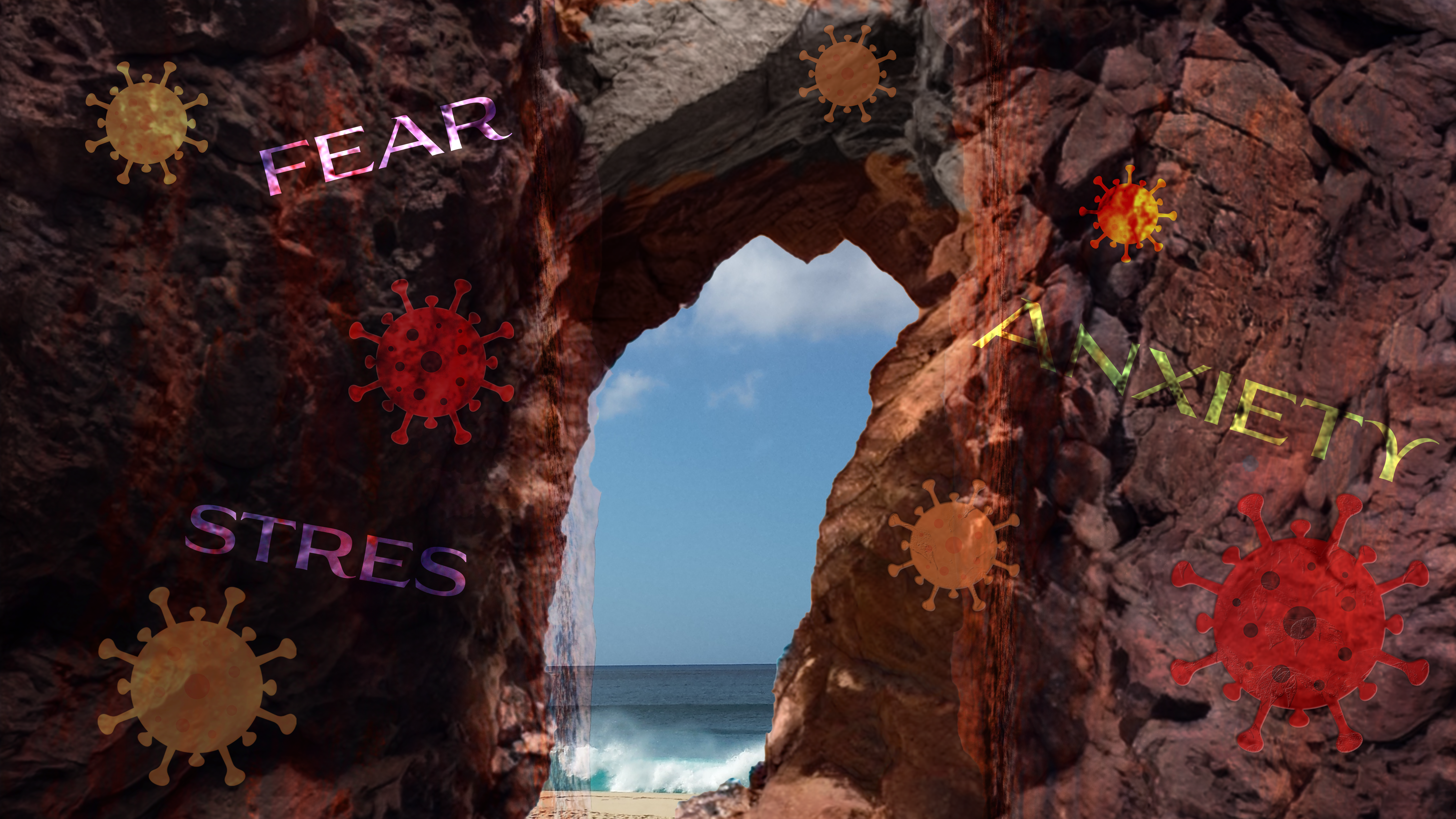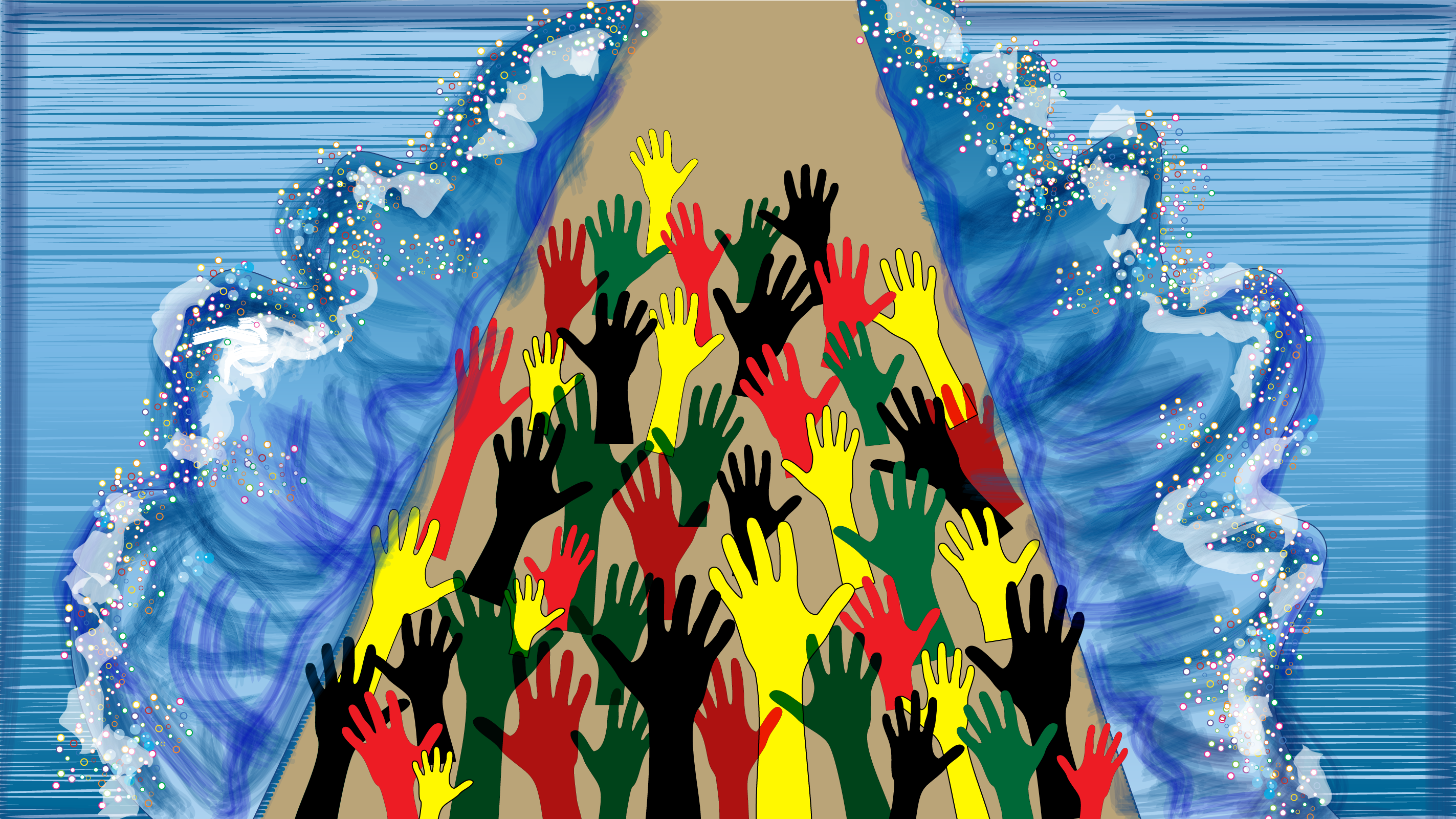If your family is like mine, then the seder begins to fall apart after the meal. This year I am struck by a parallel between the emotional flow of a Passover seder and the emotional flow of our collective experience of the pandemic. Metaphorically, if we think of our last couple of years as “life’s seder,” then we have arrived at the moment in life’s seder when people have enjoyed their meal and spent a lot of energy talking about slavery, and are starting to feel sluggish and irritable. As they thumb through to count how many pages remain, the haggadah calls them back to alertness with Hallel, the joyful songs of gratitude offered to God. In this penultimate section the Haggadah shouts, “Wait! This isn’t over yet. Sure, we spent what felt like an eternity stewing in our suffering, but that pain was so two pages ago. Wake up! We have crossed over the sea, escaped our oppression, and we are free! Now, whether you feel ready or not, we are moving on. It’s time to sing, celebrate, and pour another glass of wine.”
Psalm 118 is one of the psalms we sing on Passover as part of Hallel. The Psalm reads:
מין המצר קראתי יה, ענני במרחב יה.
Min ha mitzar karati yah, anani b’mirchav yah.
In Rabbi Nathan Goldberg’s Passover Haggadah: New Revised Edition, one of the most popular haggadot with English translations, the verse is translated: “Out of distress (מצר, mitzar) I called upon the Lord; He answered me by setting me free.” As we each commemorate the Exodus, seeing ourselves as those who have personally been redeemed from slavery in Egypt (מצרים, mitzraim), how fitting it is to conclude with this song.
The sentiment carries over in our own time too. In the past few years, faced with isolation and vulnerability, we found ourselves back in the land of Egypt. We tried collectively to ameliorate the loss and suffering our community was experiencing, but in the end we were still quite helpless. We, alone, did not have the power to set ourselves free from all of the afflictions we faced. Yet we held onto the hope that things would get better; we prayed that a more transcendent power than our own would redeem us from our misery.
 This year, many celebrate around tables in person rather than singing to lagging computer screens. This year, our seder reminds us that it is not enough to survive our challenges, we also need to take time afterwards to express relief and joy. This year, in our transition out of our struggles, let us sing like an Israelite crossing the sea on dry land. We called out in a time of need and God answered by setting us free.
This year, many celebrate around tables in person rather than singing to lagging computer screens. This year, our seder reminds us that it is not enough to survive our challenges, we also need to take time afterwards to express relief and joy. This year, in our transition out of our struggles, let us sing like an Israelite crossing the sea on dry land. We called out in a time of need and God answered by setting us free.
But not every interpretation of this verse leads us to the same conclusion that Goldberg offers. In Nathan Englender and Jonathan Safren Foer’s New American Haggadah, they translate: “From the tightening straits (מצר, mitzar) I called to God, He answered me with Godly expanse (מרחב יה mirchav ya).” This translation plays on the parallelism between narrowness ( tzar,צר) and expansiveness ( mirchav ,מרחב).
We still have our moments, many of us still with great frequency, when the passageway feels narrow. In those moments, stress, anxiety and fear feel so constraining that we begin to suffocate under their weight. But Englendar’s translation reminds us that God is in the deep breath, expansive creativity, unbridled hope, unbarred opportunity. This translation does not offer us as absolute or robust a redemption as the freedom Goldberg finds. However, it offers us a reminder that it is ok to still feel a bit trapped even when the traumatic events of the past are supposedly over.
Celebrating freedom with joyous song may not feel completely right yet. This feels especially true for those of us who still feel, from time to time, like everything is tightening around us. We may not always (or ever) connect to God as the great redeemer who completely rights our upended world. Still, we can find God in that internal space we access in order to keep pushing forward.
A third creative translation, inspired by Rabbi Micah Shapiro, is to read the answer to the speaker’s call as an echo. From a place of confinement I call on God by name: (yah, יה) The answer I am met with is the echo of my call (yah, יה). For me, this translation is powerful because it captures ambiguity and the dizziness of emerging from times of great sorrow, but it is still offered to God as a song of gratitude.
In the face of lingering grief and vulnerability, it makes sense that many of us have a similar ambivalence to the spirit captured in this translation. There are relationships and beliefs we once leaned on that have proven to be less sturdy than we expected. At the same time, we have witnessed unprecedented exhibitions of collective power and interpersonal kindness. How do we make sense of all of the contradictions we have seen.
When I call out to God, whose voice generates the echo I hear? Is it my own voice reverberating back or the voice of one infinitely more expansive than myself? Has my call returned to me unheard, further reinforcing my loneliness and isolation? Or is this a loving affirmation of a God who is always with us? What does it mean that the answer, “yah,” is the same as the call, “yah?” Does the response signify that the answer is already within me? Or is the response a promise of a redeemer that has been waiting patiently for my call?
For me, this translation is powerful because it captures theological uncertainty and the dizziness of emerging from times of great sorrow, but it is still offered to God as a song of gratitude. In the face of lingering grief and vulnerability, it makes sense that many of us have a similar ambivalence to the spirit captured in this translation. There are relationships and beliefs we once leaned on that have proven to be less sturdy than we expected. At the same time, we have witnessed unprecedented exhibitions of collective power and interpersonal kindness. How do we make sense of all of the contradictions we have seen.
I do not have any conclusive answers, but I believe the wealth of translations we find for this one deceivingly simple sentence may lead us in the right direction. We cannot understand the complexity of life through one lens. Rather, we need to piece together a wealth of interpretations in order to make meaning and find grounding in an upended world. Within our rich tradition of honoring a wide range of textual interpretation and finding deeper truth where they all intersect.
As we transition into a relatively post-COVID life, we need a God who redeems through freedom, and a redemption found in Godly expanse. We need to acknowledge a world where our own calls for help may be echoing back at us, and a world where God is always on-hand offering us safety and hope. And, like our ancestors, we will continue to pray to this one multifaceted God in the spirit of the final words of our seder: Next year, may we find ourselves in a true Jerusalem (abode of peace). Next year, may we move from a world reeling from suffering to a world where everyone knows expansive freedom, safety and peace.







